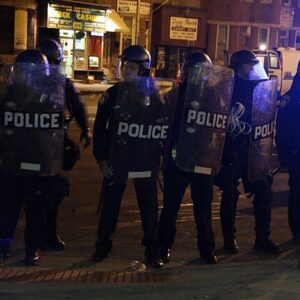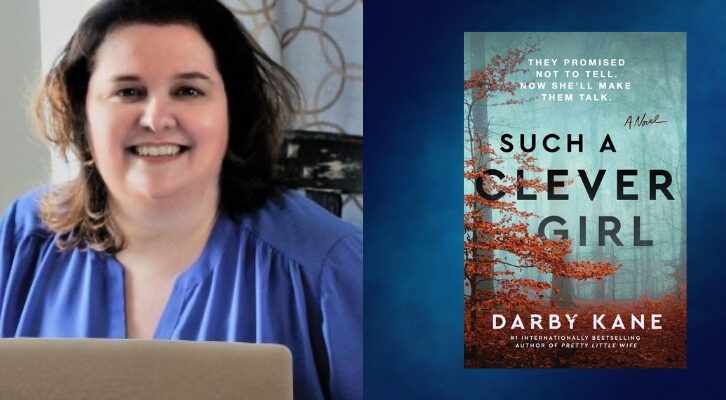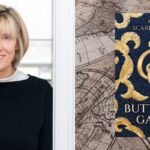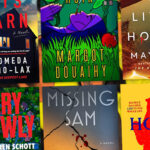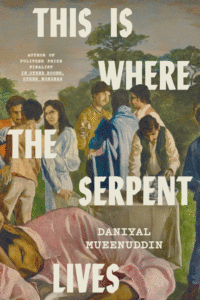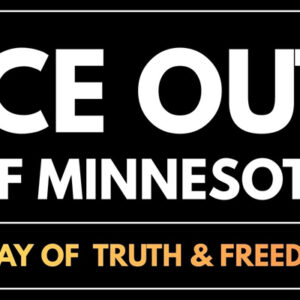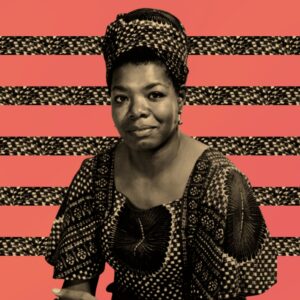
Life in the Arab World as a White Lesbian Feminist
Arvind Dilawar in Conversation with Chivvis Moore
As an American-born feminist and a lesbian, Chivvis Moore is the last person that many people would expect to be an advocate for Arab culture, which is so often thought of as anti-American, misogynistic and homophobic. But Moore’s experiences in the Arab world, which began in 1978, when she traveled to Egypt to apprentice as a carpenter, and ended in 2008, when she left Palestine after teaching English there for 11 years, tell a different story—one poetically captured in her recent memoir, First Tie Your Camel, Then Trust in God (out now from Northloop Books). When Moore first enters the fray of Alexandria, rather than being ostracized, she is embraced, literally being led through the ancient city to her destination by a string of Egyptian Samaritans. This welcoming generosity continues throughout Moore’s entire time in the Middle East, even during the Second Intifada, when Palestinians who’ve had their homes bombarded insist on offering her tea and coffee amidst the rubble.
That isn’t to say there is no culture clash. As Moore grows closer to her woodworking mentor, he begins to treat her as his daughter, imposing traditional, patriarchal limits on her behavior. And, as a lesbian living in relatively conservative Muslim societies, Moore never opens up about her sexuality. The tension between kindness and control forces Moore to confront the realities of the Arab world, allowing her to relate it, its people and its customs in a way far truer than any of the headlines from which Americans typically glean their stereotypes about Muslims.
I recently had the opportunity to ask Moore a few questions about her memoir and her time in the Middle East. What were her expectations prior to first arriving in Egypt? How was she able to recount pivotal events from decades past? Where do the Middle East and the United States meet today? We discussed this and more. What follows is our conversation, edited for clarity and brevity.
Arvind Dilawar: As an American, a woman, a feminist and a lesbian, did you have any trepidations about traveling to Egypt for the first time in 1978?
Chivvis Moore: I never gave it a thought. It truly never occurred to me that, as an American, a woman, a feminist or a lesbian, I would have trouble. I did not expect that I would be able to work with men, much less alone with men in a shop, and I did not expect that I would be able to work with my hands. I wasn’t sure whether I would have to wear a veil. But none of these would have counted as trouble; I would simply have done what was required. … If, however, being an “out” lesbian had been on my agenda, then I’m sure I would have wondered how I would be received. But although in my own country I felt a need to be out and to speak up in order to work for rights for all of us, in Arab countries I felt strongly that this was not my role. The culture was not mine; I had come to learn, not to try to change people’s views or behaviors.
I did tell people in each country, Arabs who had lived in Western countries and who became friends of mine, that I was a lesbian. Otherwise, I simply never mentioned my sexuality, and no one ever asked. I was warned, in both Syria and Palestine, that foreign teachers had lost their jobs, presumably when it became known they were having gay relationships, but I felt no need to form intimate relationships. I had less energy than I might have had due to a chronic illness and would not, in any case, have considered it a kindness to begin an affair, knowing the complications it could cause for a partner and aware that one day I might leave the country. I did not want to risk putting people off by bringing up the fact that I was a lesbian, although in many cases, it was pretty clear that they knew.
AD: How was it clear that they knew?
CM: Returning to Egypt in the 1990s, I worked for two years in an institute in the American University in Cairo where a number of the teachers were gay. The dean above them was well known to be a lesbian. People at the university, and the friends I made through the university, had had enough contact with gays and lesbians to perceive who was gay or lesbian without being told. There was no need to talk about it. And what seemed to be a more diffuse attitude toward gayness in Egypt at that time meant there were no firm identities based on who was gay and who wasn’t, the way there are in the US. I’d say to a gay friend, “You have quite a gay community here,” and he’d say, “There’s no community of gays. We are just who we are.” Egyptian men who had gay relationships often went on to get married; some continued gay relationships on the side.
In Palestine the woman who was directing my work preparing curriculum and teaching in the MA Program in the Institute of Women’s Studies asked me one day shortly after I joined the Institute who I was. I answered that I was your everyday garden-variety lesbian. She laughed. The Institute was small; we all knew about one another’s private lives—and mine was living always with women housemates and never going out with men. The couple of women who visited me during the years looked butch: short hair, and one wearing, not jeans, but obviously men’s pants. Afterward, several of the women in the Institute mentioned to me more than once how much they had liked them. It seemed to me they made a special effort to say this, quite possibly to let me know it was fine with them that they were lesbians. At a party soon after I joined the Institute, one of the women, standing close to me, said, “I hear Im Kalsoum (the famous Egyptian singer) was a lesbian.” Another, standing even closer to me said, “Oh, I never liked her, but now I do!” Finally, my friend Muna, as I was musing one day that her sister probably didn’t know I was a lesbian, answered me, saying pointedly, “What makes you think people don’t know you’re a lesbian?” implying, it seemed to me, that people did know.
AD: As someone who was raised Muslim, I especially appreciated the passage in your book where you discuss how Egyptians, Palestinians and other members of the Islamic world do not necessarily identify themselves as the same peoples, despite the outsider’s tendency to lump them altogether. What are the similarities and differences you found between Egyptian and Palestinian culture?
CM: I will hazard several tentative generalizations: Both peoples, in my experience, share a perspective on life that includes humor, though Palestinian humor, understandably, is darker, has a more cynical edge. Both populations share an incredibly demanding work ethic. Both are religious, and both live more evidently in accordance with the tenets of their faith, in particular, tolerance and generosity, than the majority of people in the Christian communities in which I was raised. Both peoples, like all colonized populations, value democracy and human rights, including the right to live free from oppression. Both are proud of their heritage.
As for differences, Palestinians, at least up to the last 15 years or so, I believe valued education more than Egyptians did. I think most Palestinians, having lost land, most means of making a living and shorn of age-old community resources, shared the view that education was their best chance at realizing their potential as individuals and as a people. Also, because Israel does not allow Palestinians a sustainable economy, Palestinians are in the position of having to depend on outside sources for jobs. A culture of dependency, with jobs and funding coming from NGOs and government agencies, is the attendant risk.
AD: Why do outsiders, especially Americans, commonly fail to distinguish Middle Eastern cultures?
CM: US citizens do not distinguish these cultures because for the most part they do not make an effort to understand them. They may travel through countries as tourists but learn little. They don’t read the writings of Arabs and other Muslims. Rather, they rely on mainstream televisions and newspapers, which paint the picture the US government and US corporations want them to see, so that these entities will have a willing public behind them as they make wars across the world and exploit the resources and people of the Global South. Americans hear of the atrocities of ISIS and conflate ISIS with all Muslims. They can’t tell a Sikh from a Muslim; they confuse Pakistan and Palestine. They forget, I think, the millions of Muslims who live in Asia and Africa. Many think Afghans and Iranians are Arabs. And so on. They are—we in this country are—incredibly ignorant of the rest of the world. It is uncomfortable to know what our government and corporations are doing abroad; and truly confronting the effects of our actions—and our inaction—would require major changes of each of us. It is easier not to see.
AD: Your memoir covers a period spanning almost 40 years and occasionally includes excerpts from journals you kept at the time. In relation to writing First Tie Your Camel, how important was it to keep a journal? Besides referring to your journals, how else were you able to reconstruct a story that began decades ago?
CM: It was absolutely vital that I keep a journal. I have kept journals since I was a child, sometimes skipping years, other times writing almost daily. During that first year in Egypt, I wrote every day, recording conversations as accurately as I could, partly because everything I was seeing and learning was so important to me, partly to explore and counter my own distress. Without these records, I could not have written the book that I did.
During the first couple of years in Palestine, I did the same, and most of what I quote in the book comes therefore from those records of the early years. Anyone I know at Birzeit University will know that I have written mostly about the two first years I worked in the Department of Languages and Translation at the university, and very little about my time in the university’s Institute of Women’s Studies.
One other record of mine helped tremendously as I wrote the book: After work, and late into the night, I would stay at the university and write emails to an increasing number of people, beginning in the year 2000, when the Israeli military presence was increasingly felt in the West Bank, through the invasion of the West Bank cities in April 2002.
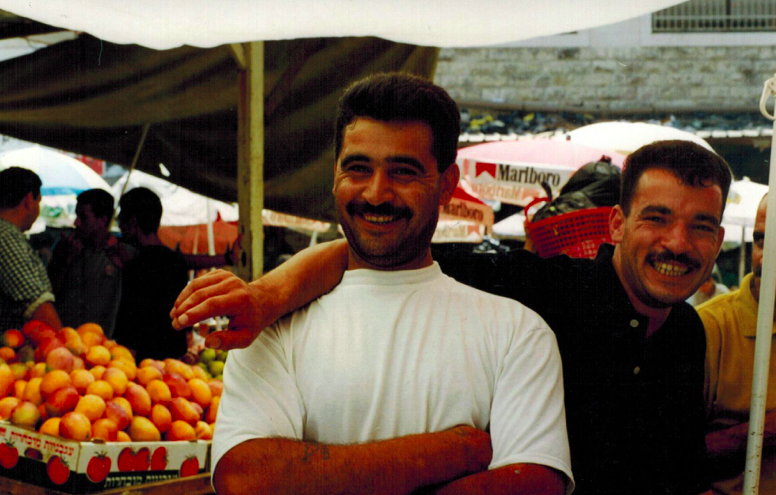 Men at the Market in Ramallah, Palestine, Circa 1998-99 (Photo by Chivvis Moore)
Men at the Market in Ramallah, Palestine, Circa 1998-99 (Photo by Chivvis Moore)
AD: You mention that you wrote every day in Egypt partially because you were distressed. What was the cause of that distress? And how did writing help you counter that?
CM: In Chapter 10, “The End is Unknown,” I describe a low point in that first year in Egypt. I had just been sick, then moved into a cold room with no heat or hot water, was feeling impatient and discouraged at my lack of progress both at work and in learning Arabic, and concerned at my own lack of generosity amid all I was being given. I was confronting myself—really, my own self-centeredness, self-doubt, and tendency to depression. Writing has always helped me to think through situations, to understand myself better, and to make sense of things.
AD: In the wake of this summer’s ISIS-inspired shooting at a gay nightclub, many people are questioning Islam’s relationship to homophobia. What do you believe is the relationship between Islam and homophobia?
CM: There are passages in Islamic texts that clearly favor heterosexual marriage, and there is a minority interpretation of certain passages in the Qur’an (4:15-16 and the story of Lot), along with a collection of inconsistent ahadith [reports of the prophet Muhammad] that condemn sodomy—but the exact same thing is true of both the Christian Bible and the Jewish Talmud. Homophobia is found also in poor, largely Christian countries such as Ghana, Uganda and Kenya; and Christian zealots in the US have donated time and money to try to implement severely repressive anti-LGBT laws in Christian Africa, including Uganda, where they tried to implement the death penalty for homosexuals. Yet people don’t go around saying Christianity forbids homosexuality.
Interestingly, a 2015 Pew poll showed that American Muslims are more accepting of homosexuality than evangelical Christians, Mormons and Jehovah’s Witnesses, and more likely to support same-sex marriage than US evangelicals, historically Black Protestants, Mormons and Jehovah’s witnesses. US Muslims are just about as likely to support same-sex marriage as Christians generally. (See Glenn Greenwald, article cited above.) I personally know a number of Muslims who are gay and lesbian, and it’s clear to me that they regard the homophobic texts of their religion as irrelevant to their standing before God.
Most Arab countries still have laws on their books that restrict sexual freedom, just as we have in the United States, although the penalties are often harsher. The harshest of these laws—some of which, incidentally, date to colonial days, when Arab societies were judged as “perverse” in Western eyes—were not employed, to my knowledge, in any Arab country I lived in. In Egypt, men would be rounded up and arrested in gay bars, but in Palestine, the town of Nablus, in the northern West Bank, was known as the place one could find gay men.
In my opinion, it is patriarchy, with the male need to maintain and control the nuclear family that is responsible for our societies’ antipathy toward homosexuality. Men have interpreted the Islamic texts, and men have made the laws—although women are now also claiming the right to interpret the texts and are slowing taking their place in governments.
Arvind Dilawar
Arvind Dilawar is a writer/editor whose work has appeared in Newsweek, The Guardian, Vice and elsewhere. Find him online at his website – adilawar.com.









